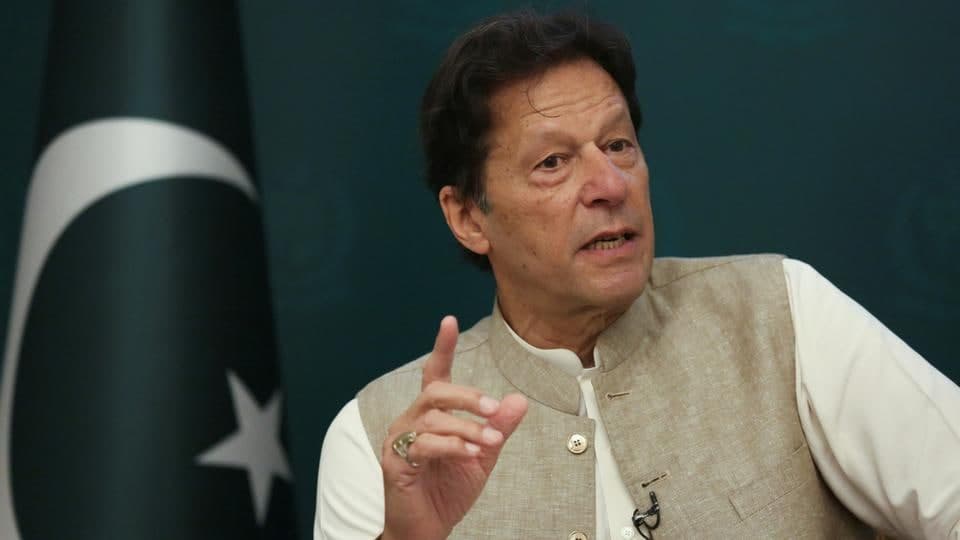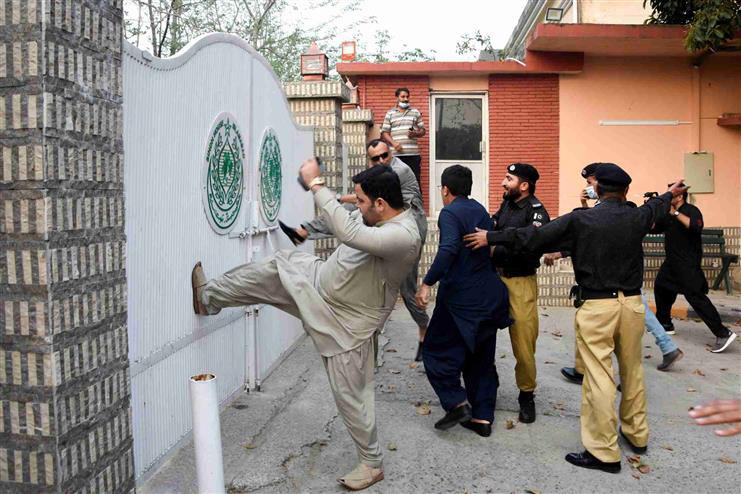Members of Pakistan Tehrik-E-Insaaf (PTI) party and supporters of Prime Minister, Imran Khan stormed the Sindh House in Islamabad, an opposition party facility, and forced themselves into the building after protesting for hours outside against dissident lawmakers staying in the building.
The outrage was sparked as nearly two dozen members of the ruling Tehreek-e-Insaf (PTI) party planned to join a no-confidence vote against their own PM – blaming him for the economic crisis and spiraling inflation in the country.

A vote that will decide whether the Prime Minister keeps his post is expected later this month. His party is vowing to fight “to the last ball.”
Expressing strong disapproval of the two dozen dissident lawmakers, the supporters stormed the Sindh house, where the lawmakers are staying.
Authorities later say that no harm was made to any of the lawmakers and at least a dozen of the troublemakers were arrested, including the two ruling lawmakers identified as Atta Ullah and Faheem Khan, who allegedly incited the attack on the building.
“I have talked to the Inspector General Police in Islamabad and ordered him to control the situation,” Interior Minister, Sheikh Rashid told the media as he expressed concern at the violence.
Dozens of PTI workers, according to the television footage, barged into the Sindh house chanting slogans against the group of disgruntled lawmakers.
Information and Broadcasting Minister Chaudhry accused the Sindh Government of housing the turncoat lawmakers, which he said was a provocation for PTI workers.
The votes are increasingly stacking up against the former cricketing star, whose governing coalition has a thin majority in parliament. A vote that will decide whether he keeps his post is expected later this month. His party is vowing to fight “to the last ball,” using a cricketing analogy.
Democracy remains fragile in Pakistan. No prime minister has managed to serve out the full five-year term, while four military dictators have also ruled the country in its 74-year history.



